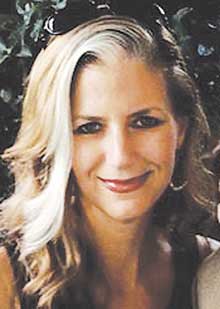 By Margaret Evans, Editor
By Margaret Evans, Editor
It was a dark and stormy night . . .
Actually, it was early evening, and not quite dark yet, and not really stormy, either . . . just blustery and a little drizzly. But it was cold. Marvelously cold. After a relentless stretch of warm, sunny weather, it finally felt like November.
I was in my car, headed downtown to fetch my daughter who’d been shopping with friends, and I reveled in the long-overdue seasonal shift. It had come just in the nick of time. We wouldn’t have a hot Thanksgiving after all! (Who wants a hot Thanksgiving?) I was chilled and damp and could hardly see through the misty windshield . . . and I couldn’t have been more delighted.
And then it happened. My radio scanner landed on the familiar, somewhat overwrought strains of the Tran Siberian Orchestra’s “Carol of the Bells.”
Did I mention it was before Thanksgiving? Several days before Thanksgiving. As a matter of principle, I condemn Christmas music before Thanksgiving. Intellectually, I abhor the very notion. Theoretically, I hold it to be a grave social impropriety.
I cranked up the radio and rolled down the window.
And in that moment, “Carol of the Bells” spoke to something deep in my soul. It spoke of midnight skies and cedar forests, of fireplaces and frosted windows and frozen ponds. It spoke of icicles and ice skates, of holly and ivy, of girls in white dresses with blue satin sashes. It was the very sound of wonder, itself . . . the very sound of winter. The music had no words, but this was a moment of perfect communication. There in my old station wagon, rolling down Charles Street around suppertime, I was one with the stars and the moon and the planets… and with every person in the world, since the beginning of time, who had ever known winter. I was absolutely alone, but I’d never felt less lonely.
Ah, music.
In a recent interview I caught online, James Taylor talked about music as the “universal language,” a cliché he believes to be true:
“I think that when a person hears a major 7th chord, they have a certain relationship emotionally to that chord. You hear a song, and you weep. It’s not something you decide on, like language. When you try to make a point with language, it’s up for grabs, it’s analytical, it’s a cerebral process. Music either connects with you or it doesn’t. You feel it. Because it is a true thing in the world. It’s physics. An octave is twice the frequency of the note of the octave below it—that is a physical reality . . . So there’s something empirically true about music, and that means that it’s a relief from the isolation of life. Humans live in their own assembled world… it’s in their brain… and it’s in isolation… it’s a prison. It separates us. We want to give that the slip and fall back into what really is … and music allows us to do that.”
Amen, JT. And have we ever needed music more than now? Have we ever longed to fall back into what really is – to escape the prison of our own analytical minds – more than we do today, when even the sweet sound of Christmas seems muted by the chaotic noise of election season?
As I was musing on music, I saw an article posted on Facebook about a young woman who’d recently flown ‘cross country with her 3-month-old baby to be at the deathbed of her mother, who’d just had a stroke. Everything was going wrong for this woman – as so often happens when one flies, and especially when one flies with an infant – but thanks to a few extraordinary “random acts of kindness” she made it home just in time to hold her mother’s hand as she passed. It was a beautiful story, and my friend who’d shared it commented that it had helped restore her faith in humans, explaining that, “this Trump-love/Muslim-hate got under my skin yesterday.”
And it occurred to me that all this atmospheric noise we live with, day in and day out – our political “discourse” as we politely call it – is the very opposite of music. The opposite of “a true thing in the world.” The pervasive, media-driven impression that we’re all locked in this epic battle against each other – that my side is right and your side is wrong, that my side is good and your side is bad, that my side loves while your side hates? It’s all an illusion . . . just part of those “assembled worlds” in our brains, those prisons that separate us from each other. The “Trump-love/Muslim-hate” that was troubling my friend? The Muslim-love/Trump-hate that might be troubling someone else? They aren’t real. They’re abstractions. You can’t actually love (or even hate) in the abstract. Love is how we treat each other, what we do for each other, how we care for each other minute by minute, face to face. It’s not an ideology, or a political opinion, or an argument waged on Facebook, or a slogan on a tee-shirt. Love is action. Those strangers who helped that other stranger make it home to see her dying mother? That’s real. That’s love. Like music, love is a true thing in the world, and the two often seem intimately entwined.
Lately, Jeff and I have been binge-watching a medical drama on CBS called Code Black. No, it’s not one of the cool, edgy shows that everybody’s raving about, but we seem to be growing less cool and edgy by the minute over here, so we love it. In a recent episode, the ER docs are treating a cast member from The Lion King who has an infection in his throat. The head doctor – played by the wonderful Marcia Gay Harden – is just two years past losing her entire family in a car crash, and during an emotional “hallway moment” outside the ER, she tells her best friend and nursely sidekick (played by the equally wonderful Luis Guzman) that a cast recording of The Lion King, a family favorite, was among the personal items retrieved from the car after the accident that killed her beloveds. She has clearly been hijacked by the memory and is in no shape to return to her patient. Knowing there’s nothing he can possibly “say” to make things better, Luis grabs Marcia by the shoulders, looks her hard in the eye and – in one of those moments that only happen on TV, though you wish they’d happen in real life – he throws his head back and begins singing, at the top of his lungs, an African chant from the musical. It is completely unintelligible, totally workplace-inappropriate, and just what the doctor ordered. She smiles, wipes her eyes, and returns to the ER.
I’m telling you, this is a great show.
Of course, even the “universal language” has its limitations. As James Taylor mentions above, “music either connects with you or it doesn’t.” This is why – to cite a recent example – I could barely hold back tears while performing Handel’s ‘Messiah’ with a choir last week, while my 14-year-old daughter could barely hold her eyes open in the audience. Our family is not particularly simpatico in the music department; my husband’s a classic rock guy, I love classical and show tunes, and our daughter’s all about pop. But that’s okay, because we are all subject to the power of the major 7th chord. We may not respond to the same music, but we all respond to music, and I believe it helps us love each other better.
So, as we head into the heart of this holiday, let’s all try to tune out the noise of election season – that illusion than tears us apart – and let’s turn up the music of Christmas, a true thing in the world. Let’s dance to the light of the moon with George and Mary . . . let’s sing once more with the Von Trapps and let our hearts be light with Judy Garland. This Christmas, may we all hear the angel voices and find time to fall on our knees.
And, for those moments when we need a break from the family festivities – when the stresses and strains of the season inevitably rear their ugly heads – may we all have plenty of ear buds in the house.
Margaret Evans is the editor of Lowcountry Weekly. Read more of her Rants & Raves and visit her blog at www.memargaret.com






